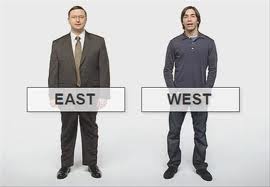
Here in Beantown, we like to think that one of our strengths is the community. Wherever you go in Boston the pride that comes from being part of the city is evident; replica jerseys from each of the four major sports played here are always prominently displayed, the college system continues to produce graduates who want to make a difference locally and those in businesses seem to thrive on co-operation as well as competition.
Nowhere is this more evident than in the start-up community and every week there is a plethora of events that seek to marry the budding entrepreneur with the right investment partner, although sometimes that may involve looking beyond the state line.
This was certainly the topic of discussion at the offices of Bingham McCutchen, hosting the regular Evening Roundtable organized by our friends at The Capital Network. TCN is a non-profit organization that provides educational resources for local entrepreneurs who are taking the first steps into seeking funding for their venture, and last night the seminar asked the question: Can Your East Coast Based Start-Up Raise Money from West Coast VC’s?

Putting aside the recent NBA Championship in which the Celtics finished runners-up to a West Coast team, the event was well attended and local start-ups were treated to a spirited discussion between the East Coast representatives – Ryan Moore (Grandbanks Capital), Rob Seaver (Vivox) ,Mike Conza (Bingham) – and the West Coast team of Phyllis Gardner MD, Ray Carey and Alan Kalin who, via satellite link, were “live from Palo Alto”.
The obvious answer to the question posed should be Yes, but over the course of an hour the panel went into significant detail as to why.
They discussed the pros and cons of inter-coastal bonding; the (very real) possibility of relocation, the perceived diligence of West Coast VC’s, the importance of inter-personal relationships, the difficulties in having a VC who is not geographically suited to the East Coast, the convergence of East and West coast terms and conditions, and importantly, what businesses are being invested in.
Since 2007, West Coast investors have participated in over 500 East Coast start-up or follow on financings totaling over $7 billion. The majority of these investments have been in Healthcare, although during the current financial situation the scale of investment from our friends in the West to the shores of the East Coast has decreased. Despite this, in 2010, 62 East Coast companies have seen the West Coast pony up some cash.
Of course, once investment is secured, the more successful businesses may find it hard to resist the lure of the West. Figures provided by the panel showed that 97% of successful tech companies are sold – normally to firms based in Seattle or California- and (according to Ray Carey) West Coast VC’s do replace management more often because “You get paid more, but the hurdles are higher.
Ray Carey, who left Massachusetts for California, believes that the reason for this is simple, saying “nothing beats having a compelling business” although he stressed that “I need the money is not a compelling event” something that the panel agreed on. The problem seems to come from East Coast entrepreneurs who (according to Ryan Moore) “focus on the down side”, sometimes to the detriment of their business and can miss the boat by waiting too long to make the first move.
Rob Seaver, whose company Vivox received funding from both East and West Coast VC’s – a Tier 1 firm based in Waltham, Benchmark (WC) – sees the personal bond that is formed between the start-up and the VC as integral to the deal and commented that “so much more that goes into creating a successful business than capital, if the relationship is to be successful, you have to be able to work together.” Again something that may not always be possible when an entire continent separates the company and its investor.
With so many start-ups here on the East Coast, and the envious glances that are occasionally thrown in the direction of the West, events such as the one organized by TCN last night are an invaluable first step for Boston’s enthusiastic business community to get some guidance from those who have experienced the special friendship of East and West.
Ryan Moore summed up the whole process perfectly by calling it the ‘Jerry Maguire Effect’, in other words “Help me… help you. Help me, help you.” Although, even he was unable to provide the right advice for one attendee who needed $100,000 for her “breakthrough technology” by Sunday.
If all else fails, there is always the possibility of Shark Tank.
What do you think about the East vs. West coast funding opportunities?
